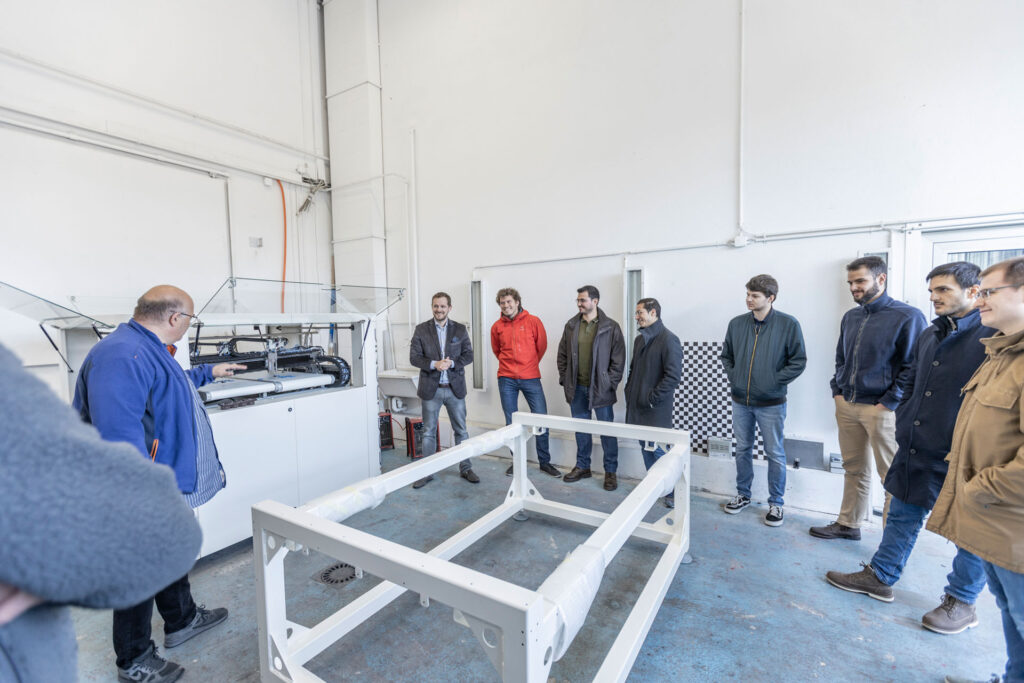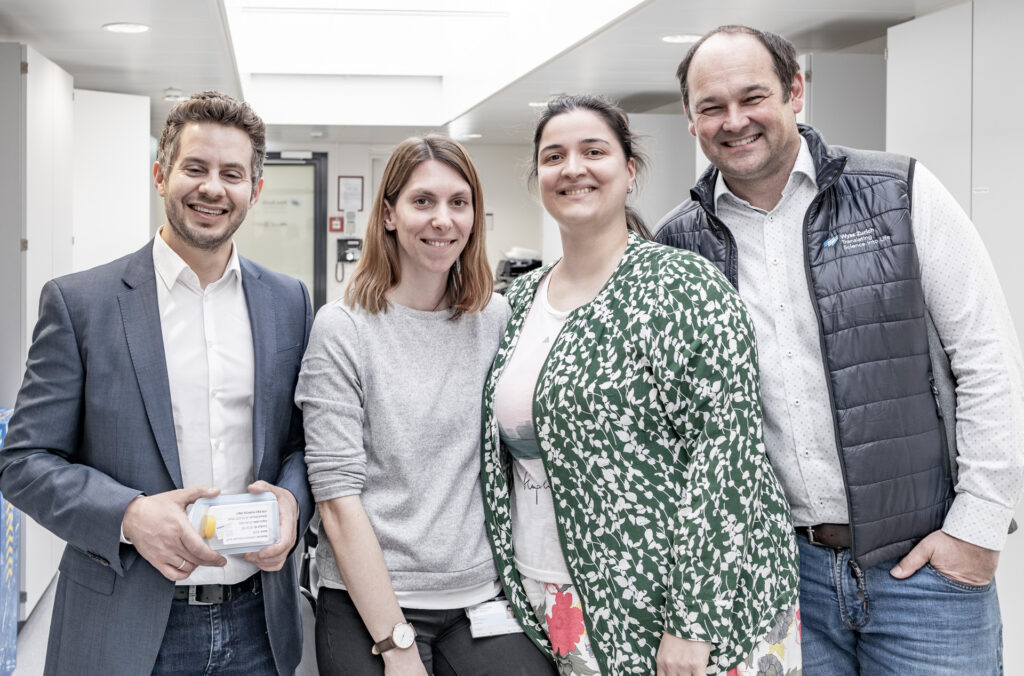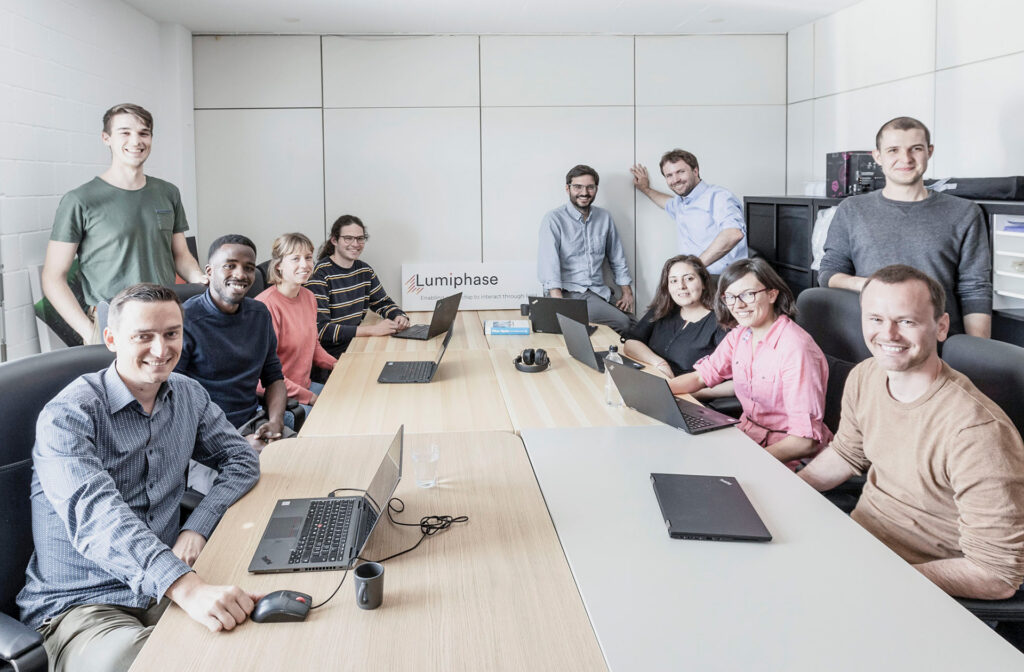Finalists 2022
Everything but the ordinary: the finalists 2022
The jury chose Isochronic as a finalist because they are convinced that the market needs its solution. The new robots require less space and are more energy efficient. The approach is highly innovative and allows faster and more efficient production. The team has the technical know-how to build a prototype, but also the marketing and sales expertise needed to develop the market. In the case of LifeMatrix Technologies, three things convinced the jury. First, there is a real need for transplants that grow with the patient, for example in operations on children’s hearts. Second, the bioengineering is well developed; it is based on solid scientific publications and stands out from alternative approaches. Third, the team consists of renowned scientists and company founders who radiate great enthusiasm for the cause. Lumiphase was chosen as a finalist because the company’s managers actually do everything that can be asked of a start-up right. The transceiver module they developed makes communication between computers more power-efficient and thus cheaper. The chip itself is also less costly and easier to assemble than previous ones.
Isochronic AG
in Denges in Canton Vaud has developed a pick-and-place robot mechanism which sorts out objects continuously (as opposed to conventional robots, which pick up one object at a time in serial order). The new isochronic robots thus complete tasks many times faster than conventional robots and also require less space.
from Denges in Vaude has developed a Continuous Motion Robot (CMR) mechanism which sorts out objects continuously, whereas conventional robots pick up one object at a time in serial order. The new CMR robots thus complete tasks many times faster than conventional robots and also require less space.
LifeMatrix Technologies AG
in Zurich develops biomimetic implants for heart and blood vessel surgery. The implants consist of polymers that are molded into the shape of the vessel to be replaced and degradable in the body. After the procedure, the patient’s natural cells reform around the implant, integrating it into the body. When the implant is degraded, natural tissue (e.g., blood vessels or heart valves) made of the patient’s own cells remains
in Zurich develops biomimetic implants for heart and blood vessel surgery. The implants consist of polymers that are molded into the shape of the vessel to be replaced and degradable in the body. After the procedure, the patient’s natural cells reform around the implant, integrating it into the body. When the implant is degraded, natural tissue (e.g., blood vessels or heart valves) made of the patient’s own cells remains
Lumiphase AG
in Kilchberg near Zurich developed a new generation of electro-optical semiconductor chips based on nanometer-thick barium titanate crystals (BTO) which convert electronic pulses into light pulses to be sent across fiber optic cables, with twice the data throughput at 30 percent lower cost and with 70 percent power savings.
from Kilchberg near Zurich had developed a new generation of electro-optical semiconductor chips based on nanometer-thick barium titanate crystals (BTO) which convert electronic pulses into light pulses to be sent across fiber optic cables with twice the data throughput at 30 percent lower cost and with 70 percent power savings.


